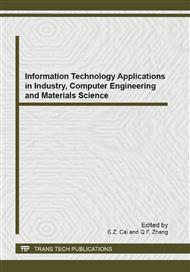p.3455
p.3461
p.3466
p.3471
p.3476
p.3482
p.3487
p.3492
p.3497
One-Dimensional Searching-Based Particle Swarm Optimization
Abstract:
Particle swarm optimization (PSO) guides its search direction by a linear learning strategy in which each particle updates its velocity through a linear combination among its present status, historical best experience and the swarm best experience. Such a velocity update strategy is easy to achieve, but it is experimentally inefficient when searching in a complex space. The reason is that the current velocity direction of each particle definitely has a great potential on optimal value, however, traditional velocity accumulation search strategy has a great restriction on such a velocity potentiality. Therefore, a new searching mechanism based on One-dimensional Search (OdS) technology is presented in this paper, and a novel PSO variant (OPSO) is also proposed so as to let the swarm effectively search along the first several principal velocity directions by OdS strategy. OPSO can inherit most of the velocity information of all the particles to guide them to the most promising direction, which has a great difference in learning mechanism with usual PSOs. Experimental results indicate that OPSO has competitive performance when comparing with the well-known CMA-ES and CLPSO.
Info:
Periodical:
Pages:
3476-3481
Citation:
Online since:
September 2013
Authors:
Price:
Сopyright:
© 2013 Trans Tech Publications Ltd. All Rights Reserved
Share:
Citation:


